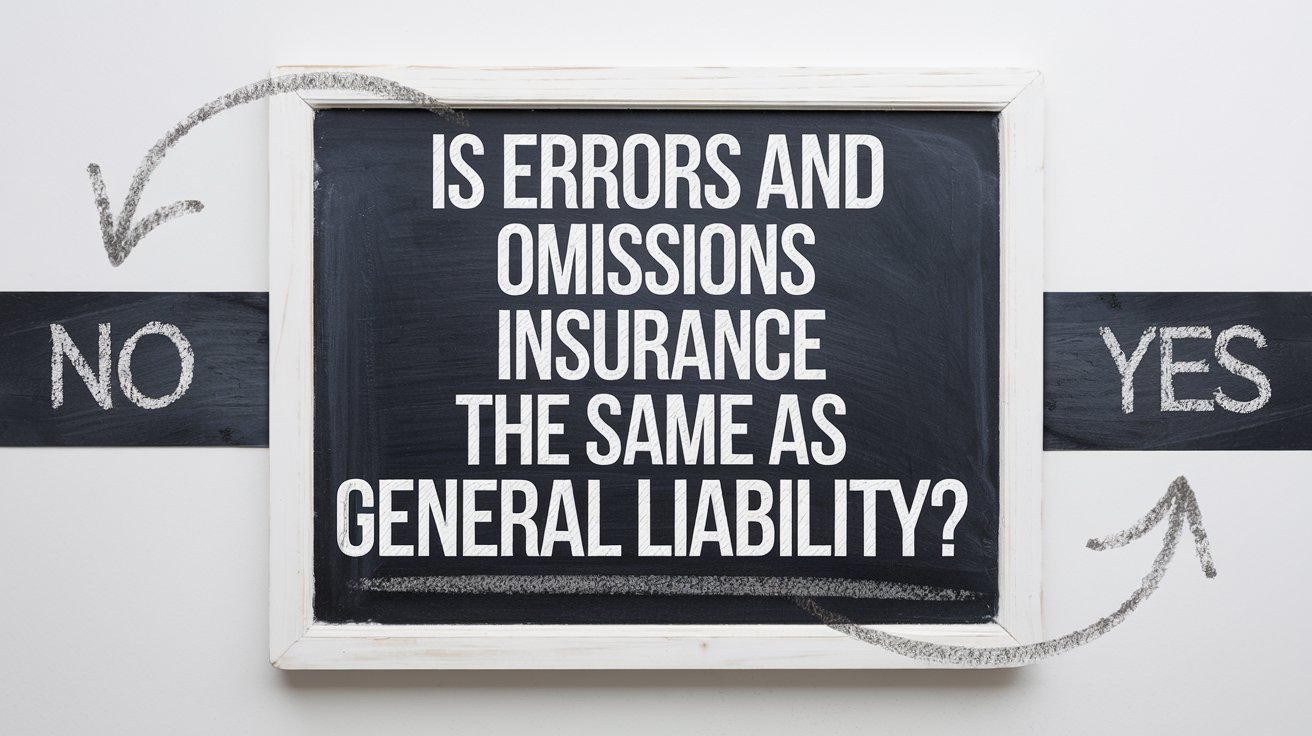To make sure you have enough protection in the vast and frequently complex world of business insurance, it’s critical to comprehend the distinctions between different types of plans. Among the often-asked questions is: Is general liability insurance and errors and omissions insurance the same thing? Both insurance plans play important roles in shielding companies from risks, but they address quite different facets of responsibility. Comprehending the specific objectives and scope of each might assist entrepreneurs in avoiding significant financial complications.
What Does General Liability Insurance Cover?
Protection against legal liabilities insurance is among the most popular types of insurance for businesses. It is intended to shield companies against incidents involving potential property damage, personal injury, and bodily harm brought on by their operations. For instance, general liability insurance might pay for a customer’s medical costs and legal fees if they choose to sue you after they slip and fall within your store.
This kind of insurance, which is critical for almost all businesses, regardless of size or industry, covers a wide range of risks that a company may encounter in the course of operating. Even though it provides extensive coverage, it is not impenetrable. In particular, it is frequently the case that general liability insurance does not cover claims pertaining to professional services, advice, or other errors that may arise in specialized professional disciplines.
In order to defend against outsider lawsuits, general liability is crucial. This implies that it covers situations in which a client, customer, or vendor from outside the company gets into trouble and holds the company accountable. It’s important to remember that professional services carelessness is not covered by general liability. Errors and omissions insurance is useful in this situation.
What is insurance against errors and omissions?
Professional liability insurance, sometimes referred to as errors and omissions (E&O) insurance, is intended especially for professionals who offer counsel, services, or knowledge. This kind of insurance shields companies from complaints that their expert services were insufficient, flawed, or caused the client to suffer financial loss.
Assume you work as a consultant and you provide a customer financial advise that unintentionally causes them to lose money. Or maybe you work as a real estate agent and your client loses out on a significant opportunity because of a mistake you made during a transaction. Since these events are directly related to your professional services rather than actual damage or bodily harm, general liability would not provide any protection in these situations. In this situation, E&O insurance kicks in to pay for court expenses, settlements, or awards pertaining to instances of carelessness, mistakes, or omissions in your expert services.
Professionals such as lawyers, accountants, consultants, and architects need this coverage more than others because even a small error can result in significant financial damages for their clients. It’s a safety net for people whose jobs require them to offer precise, knowledgeable counsel or services. In summary, businesses can feel extra protected from claims arising from their professional services with mistakes and omissions insurance.
The Principal Distinctions Between Errors and Omissions Insurance and General Liability
Knowing the distinctions between errors and omissions and general liability insurance can help clarify why the majority of organizations want both kinds of protection. Even though they are both kinds of liability insurance, they shield companies from rather distinct kinds of risks.
The amount of risks addressed is where the main distinctions rest. Claims for real injury, property damage, and personal injury are covered by general liability insurance. It mostly addresses mishaps, trips and falls, or property damage that arises from your everyday work activities. However, it excludes claims pertaining to expert services or counsel your company offers.
Errors and omissions insurance, on the other hand, is concentrated on instances of professional carelessness or errors. It guards against monetary damages your clients sustain as a result of your mistakes, omissions, or subpar professional services. Therefore, E&O insurance covers the nature of your professional work, whereas general liability insurance covers your actual operations.
In conclusion, just in case you were wondering, “Is general liability and errors and omissions insurance the same?”Without a doubt, the response is no. They fulfill distinct functions and shield your company from various threats. Together, they guarantee that your company is fully safeguarded and are both urgent in and of itself.
Are Errors and Omissions and General Liability Insurance Necessary?
Many entrepreneurs question if they just need one type of insurance, such as errors and omissions, or if they require both types of coverage. In actuality, in order to provide complete security, the majority of businesses—particularly those providing professional services—need both kinds of coverage.
General liability insurance offers protection against common risks that could arise while conducting regular business operations. There’s usually a chance that someone may get hurt or that property will get damaged, whether you work for a manufacturer, retailer, or service provider. Your company may have to pay high charges for claims, medical expenses, and other instances resulting from these kinds of occurrences if you don’t have general liability insurance.
However, errors and omissions insurance is crucial if you work as a consultant, real estate agent, lawyer, or any other type of professional who provides advice or services. It shields you against situations when there is carelessness or subpar work—things that general liability insurance does not cover. Customers may attest that your services caused them financial hardship, and the ensuing legal disputes may be drawn out and costly.
Together, the two insurance provide well-rounded protection. While E&O insurance covers your competence and professional integrity, general liability insurance protects your company against real accidents. When combined, they provide a thorough safety net that shields your company from a variety of threats.

